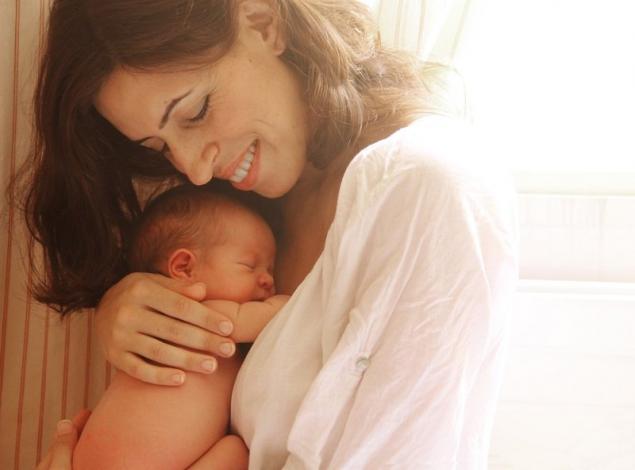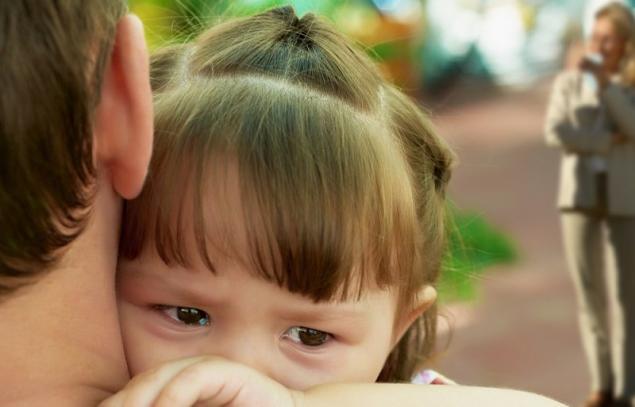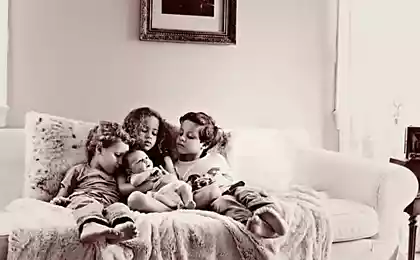206
Psychology of abusive relationships between children and parents
Everything comes from childhood. And our inability to build normal relationships as adults is also from there.
Not so long ago, the concept of abusive relationships arose in psychology, in which one person commits negative actions towards another.
An abuser is a person who mocks, oppresses, suppresses or demonstratively ignores a loved one, insults, forces him to certain actions or applies physical violence to him.

In the XX century, scientists by experiment discovered hospital syndrome. Young children were placed in ideal hospital and sanatorium conditions. They had everything: food, clothes, toys, but there was no one close to them. After a while, they began to get sick “from longing.”
This experiment showed that a child needs a mother, needs a person who will love him. The child is attached to his parents even when they do not treat him well and do not cope with parental duties, he loves them all.

DepositPhotos
At the turn of the XIX-XX centuries in the culture of Western European countries formed a special view of the principles of parenting. In the families of rich people, the babysitter was engaged in children so that the children did not disturb their mother. It was believed that the child should be seen, but not heard. And excessive attachment to parents will lead to the formation of a pampered, independent and helpless personality.
Moreover, when the child got to the hospital, they tried to ensure sterile conditions and the presence of the mother was not included in this list. The lower strata of society could not afford such “luxuries”. Their children took the same medicines, but were surrounded by the care of a loved one and healed much faster than the rich.

DepositPhotos
The children of wealthy parents were not visited, except for numerous medical staff. They were in incubator conditions and felt lonely, fading away in a hospital bed. They suddenly had bowel disease, new infections, problems unrelated to the ones that put them in the hospital in the first place.
In the 1950s, British psychiatrist John Bowlby began studying attachment theory, which began the development of modern views on parent-child relationships.

In three volumes of his book Attachment and Loss, he answered one question: “What do children need from mothers?” It is warmth, love, affection, responsiveness, stimulation, reliability, constancy. Deprived of this in childhood, the child grows either sad and anxious, or incapable of attachment. That is, it cannot build normal, trusting or love relationships on equal terms.
Another experiment proving how much a correct childhood means in the development of personal qualities of a person was conducted by Harry Harlow from the University of Wisconsin. He raised baby macaques in isolation. The scientist made two surrogates for them in the form of a wire frame in the form of a monkey body with a plastic head. One was tied to a bottle of milk and the other to a plush cloth that warmed.

DepositPhotos
One surrogate gave food, calories, and the other a semblance of parental warmth. Little monkeys spent more time with the second. “You cannot survive on milk alone. Love is a feeling, and you can not feed it with a spoon, Harlow concluded.
One more fact. In the 1990s, crime plummeted in America. Legal scholar John Donoghue of Stanford University and economist Stephen Levitt of the University of Chicago suggested that the reason for this could be the legalization of abortion. They studied state by state, the year abortion was allowed, and the demographics of crime reduction.

DepositPhotos
The statistics showed that 20 years after abortion became possible in a particular state, crime fell. Just think, because if pregnant women, but not wanting children, gave birth, they with an unwanted child would be typical. disorderly.
At one point, Harlow refined his experiment. He attached an air spray to the wire surrogate. Clinging to the doll, the monkey received a jet of air into the chest, but did not run away. She endured and continued to be near a substitute parent.

Similarly, young children who suffer bullying or beatings in the family continue to remain attached to their parents for some time.
But then, getting into society, they are unable to build normal relationships with peers. And the reason for that is the experience. violent relationship with parents.

DepositPhotos
This is the answer to the question of why we attach ourselves to the source of negative reinforcement, love those whom we allow ourselves to torture, seek consolation from the one who brings suffering. We unknowingly return for a new and new portion of torment from a habit developed in childhood.
To prevent this from happening, you can advise parents to raise children in love and have them only when they are ready to let a new little person into their lives.
About modern methods of education and the differences of paternal and maternal approach to it read in our articles.
Not so long ago, the concept of abusive relationships arose in psychology, in which one person commits negative actions towards another.
An abuser is a person who mocks, oppresses, suppresses or demonstratively ignores a loved one, insults, forces him to certain actions or applies physical violence to him.

In the XX century, scientists by experiment discovered hospital syndrome. Young children were placed in ideal hospital and sanatorium conditions. They had everything: food, clothes, toys, but there was no one close to them. After a while, they began to get sick “from longing.”
This experiment showed that a child needs a mother, needs a person who will love him. The child is attached to his parents even when they do not treat him well and do not cope with parental duties, he loves them all.

DepositPhotos
At the turn of the XIX-XX centuries in the culture of Western European countries formed a special view of the principles of parenting. In the families of rich people, the babysitter was engaged in children so that the children did not disturb their mother. It was believed that the child should be seen, but not heard. And excessive attachment to parents will lead to the formation of a pampered, independent and helpless personality.
Moreover, when the child got to the hospital, they tried to ensure sterile conditions and the presence of the mother was not included in this list. The lower strata of society could not afford such “luxuries”. Their children took the same medicines, but were surrounded by the care of a loved one and healed much faster than the rich.

DepositPhotos
The children of wealthy parents were not visited, except for numerous medical staff. They were in incubator conditions and felt lonely, fading away in a hospital bed. They suddenly had bowel disease, new infections, problems unrelated to the ones that put them in the hospital in the first place.
In the 1950s, British psychiatrist John Bowlby began studying attachment theory, which began the development of modern views on parent-child relationships.

In three volumes of his book Attachment and Loss, he answered one question: “What do children need from mothers?” It is warmth, love, affection, responsiveness, stimulation, reliability, constancy. Deprived of this in childhood, the child grows either sad and anxious, or incapable of attachment. That is, it cannot build normal, trusting or love relationships on equal terms.
Another experiment proving how much a correct childhood means in the development of personal qualities of a person was conducted by Harry Harlow from the University of Wisconsin. He raised baby macaques in isolation. The scientist made two surrogates for them in the form of a wire frame in the form of a monkey body with a plastic head. One was tied to a bottle of milk and the other to a plush cloth that warmed.

DepositPhotos
One surrogate gave food, calories, and the other a semblance of parental warmth. Little monkeys spent more time with the second. “You cannot survive on milk alone. Love is a feeling, and you can not feed it with a spoon, Harlow concluded.
One more fact. In the 1990s, crime plummeted in America. Legal scholar John Donoghue of Stanford University and economist Stephen Levitt of the University of Chicago suggested that the reason for this could be the legalization of abortion. They studied state by state, the year abortion was allowed, and the demographics of crime reduction.

DepositPhotos
The statistics showed that 20 years after abortion became possible in a particular state, crime fell. Just think, because if pregnant women, but not wanting children, gave birth, they with an unwanted child would be typical. disorderly.
At one point, Harlow refined his experiment. He attached an air spray to the wire surrogate. Clinging to the doll, the monkey received a jet of air into the chest, but did not run away. She endured and continued to be near a substitute parent.

Similarly, young children who suffer bullying or beatings in the family continue to remain attached to their parents for some time.
But then, getting into society, they are unable to build normal relationships with peers. And the reason for that is the experience. violent relationship with parents.

DepositPhotos
This is the answer to the question of why we attach ourselves to the source of negative reinforcement, love those whom we allow ourselves to torture, seek consolation from the one who brings suffering. We unknowingly return for a new and new portion of torment from a habit developed in childhood.
To prevent this from happening, you can advise parents to raise children in love and have them only when they are ready to let a new little person into their lives.
About modern methods of education and the differences of paternal and maternal approach to it read in our articles.
























